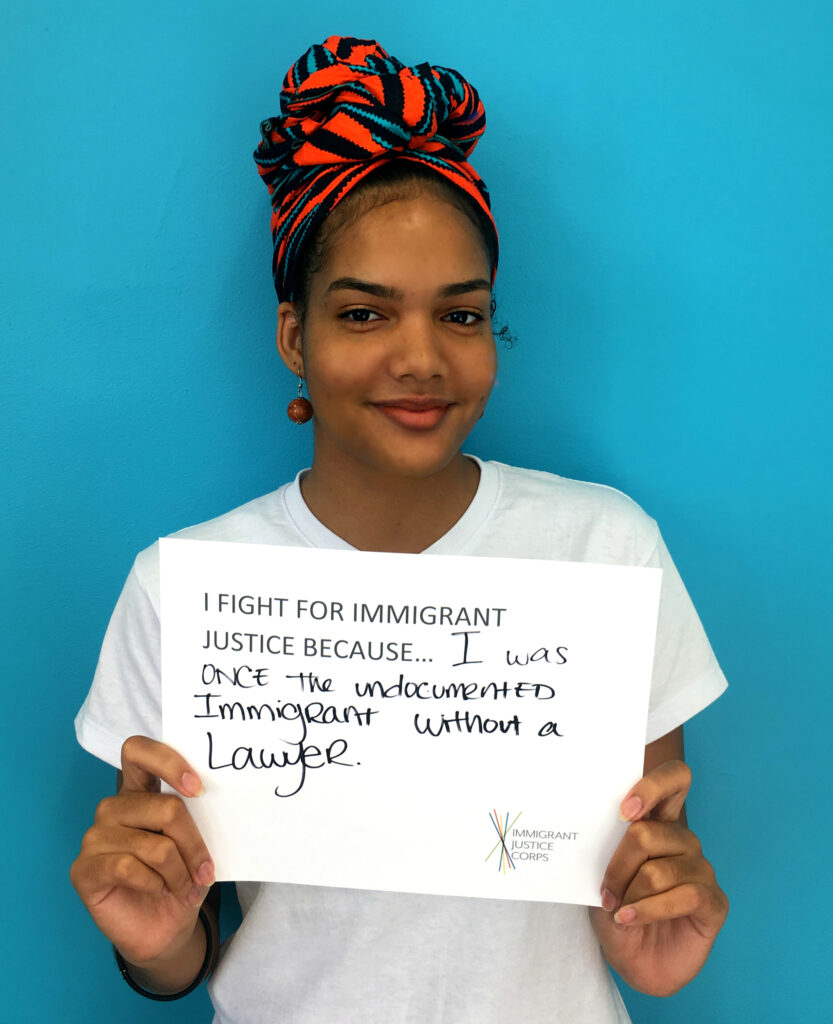Making way for healing - Fatima Khan
2024 Justice Fellow Fatima Khan, a Fellow at the National Immigrant Justice Center in Chicago, writes about learning to slow down with clients to build safety and trust.
Fatima is part of the Unaccompanied Children Program, which is currently funded by the federal government, but remains at risk. Without funding, more than 2,000 children represented by IJC Fellows are left with no representation in immigration court, forced to navigate the system by themselves.
I’ve started to think of trauma-informed lawyering not as a set of practices, but as a way of being – one that prioritizes choice, safety, and dignity for clients whose experiences have often involved the opposite. My role as an IJC Fellow at the National Immigrant Justice Center, working with unaccompanied immigrant children, is deeply legal and deeply human.
One client was 17 when we first met. She had fled sexual violence and a long history of gender-based abuse from El Salvador. By the time she sat across from me in a small conference room at our office, she had already crossed multiple borders, spent time in a shelter, and been released to a relative she barely knew. And now, she was expected to show up in immigration court to explain why she should be allowed to stay.
In our first meeting, I did what I try to do with every new client: slow down. I didn’t start with legal paperwork. Instead, I explained who I was, that everything she told me was confidential, and that she was allowed to say “I don’t want to talk about that right now.” We talked about her favorite color. Her favorite season. I noticed she looked at the floor when I asked certain questions, so I adapted – offering drawing supplies during our meetings, using visuals to explain the legal process, and checking in regularly with, “Do you want to take a break?”
When the time came to write her declaration for her asylum case, I knew the content would be painful. So we didn’t start with questions like, “What happened?” Instead, I gave her a stack of notecards and invited her to write or draw moments that stood out – moments that felt important to her story. Slowly, across several weeks and with consistent breaks, we began building her narrative together.
At one point, I realized she hadn’t seen a therapist since arriving in the United States. I worked with her sponsor to connect her with trauma-informed counseling services. A few months later, she brought a drawing to one of our meetings: a picture of herself in the future, standing in front of a school as a teacher. “That’s my dream,” she told me.
Her case is still pending. But I see signs of progress every day: the way she asks more questions in our meetings, the way she holds eye contact a little longer, the way she’s begun to trust her own voice.
I’ve filed motions and helped gather evidence. But I’ve also made space for healing. Even when a legal victory is far off, the work of showing up, in a trauma-informed, client-centered way, creates safety. And safety builds trust. And trust paves the way to justice.
Want to hear from more Fellows like Fatima? Visit our Fellow Story page to learn more!
